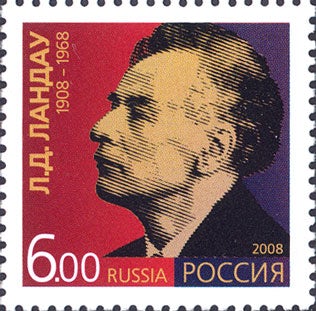Britain should open its doors to Russia’s top scientists
The times, 10 oct 2022
Creating Fellowships for scientists affected by the war in Ukraine will not only help them, it will also be a major boost for British science.
During the Great Purge, when 700,000 Russians were executed on the orders of Joseph Stalin, only twice did Soviet citizens denounce him in print. One critic was a diplomat, who soon afterwards fell to his death from a window. Another was the theoretical physicist Lev Landau.
One of the greatest in a grand tradition of Russian physicists, Landau cowrote a pamphlet lambasting Stalin as no better than Hitler. The secret police found out and in 1938 he was arrested.
His defiance of tyranny is one reason why, at the London Institute, where I work, we’re naming five new posts after him. The Landau Research Fellowships are reserved for Russian theoretical physicists and mathematicians — at a time when, in Russia, the climate of freedom in which discovery thrives is again under threat.
The secret services are reportedly up to their old tricks, with opponents to Putin meeting untimely ends. Yet our motive for creating these posts isn’t exclusively humanitarian. It is also because they will benefit us, and British science.
It’s hard to recruit the world’s top scientists, who tend to be happy where they are, whether in Moscow or Massachusetts. Yet now many Russian scientists are ready to move or have already fled their country.
In the 1930s it was Landau’s brilliance that saved him from the consequences of his courage. His colleague Peter Kapitsa lobbied the Kremlin, saying he faced a baffling problem in physics and only one man could help. It was the mystery of superfluidity, whereby at temperatures near absolute zero, liquid helium contravenes classical physics, climbing the walls of its container. After a year in jail, Landau was released. Within months he developed the theory of superfluidity that, in November 1962, earned him the Nobel prize.
We created the London Institute to be a haven for curiosity-driven research: the kind done without thought of application, yet which leads ultimately to the most transformative breakthroughs. That’s the kind Landau fought for at the Ukrainian Institute of Physics and Technology, where he was head of theoretical physics. The Kremlin wanted him to focus on research with military applications, but he refused.
As we mark the 60th anniversary of his Nobel prize, we are on a mission, as Landau was at his institute, to recruit the best Russian theorists. If we succeed, we will not only have helped them, we will also have delivered a significant boost to British science.















